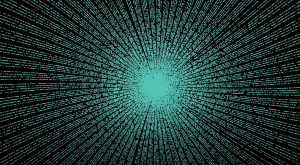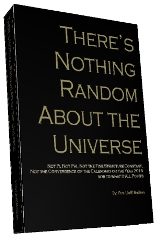Years back, I was the announcer at our shul for HaRav, whether we barely had a minion, or had our typical 300 people for Shabbat, or a 1000 for a Shabbaton. What this meant was that I was responsible for making sure everyone understood what was going on, were aware of the unifications and encoding of the prayers as the chazan made them and that they could follow along in the proper consciousness, including leading them through certain meditations. One day I asked the Rav if there was anything I could do for him and he replied simply that I could keep everyone quite for him during the Amidah, the silent standing prayer.
You see, the problem was that most people finished their standing prayers–the highest point in our very long morning connections–in a few minutes, and the Rav would routinely take 20 minutes or more. It was obvious the Rav was praying at a much higher level than any of us could fathom, and to those of us with vision, he would even vanish entirely at points in the prayers. Nevertheless, people being people, they would get restless and mundane conversations would break out everywhere, whispered and otherwise.
The Rav’s message to me was also obvious on a literal level: that he was making important connections and unifications for the congregation and the world and that we were distracting him. But studying the writings of the Arizal last night, I realized there was a deeper message.
In parsha Beshalach, just prior to the crossing of the Sea of Reeds, in Shmot (Exodus) 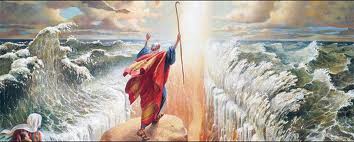 14:14, we find one of the most important verses of the Torah: “God will fight for you, but you must remain silent (YHVH Yilachem lachem v’atem tacharishun).”
14:14, we find one of the most important verses of the Torah: “God will fight for you, but you must remain silent (YHVH Yilachem lachem v’atem tacharishun).”
Moses is telling the Israelites and erev rav (mixed multitudes) accompanying him that in order to let G-d do his work (which Moses was channeling) they had to remain silent, in fact, that was all they had to do. They weren’t asked to unify themselves, to chant or meditate the Shem Mem-Bet (42-Letter Name) or the Ayin Bet Shimot (72 Names) in unison–Moses and his staff, which was engraved with both those Names) took care of that; all they had to do was silence their mouths and minds.
The spiritual process and unifications happen at a very high level and our speech and most of our thoughts occur at the lowest level (malchut) so all we do is weigh down G-d’s work and intentions and surround them with klippot (hard shells of negativity), regardless of our good intentions.
So if we want G-d in our lives, we need to be silent and realize that He does know best and is fighting for us. When we speak our minds, we’re just fighting back.
Now this verse is important for another reason. The first 3 words (YHVH YLChM LCM) 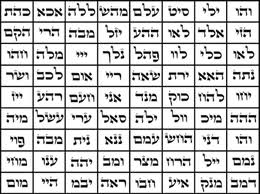 form a key (YYL or YLY)that unlocks the 72 Names that follow in a few verses and are comprised of the proper assembly of the 3 consecutive verse of 72 letters each.
form a key (YYL or YLY)that unlocks the 72 Names that follow in a few verses and are comprised of the proper assembly of the 3 consecutive verse of 72 letters each.
It’s also the key that unlocks the alternative special 72 Names, but more about that in a later article.
But while we’re on the 72 Names, note that it is in a matrix format and that only two of the Names have letters with consecutive triple tagin (crowns). They are found at column 5, row 7; and column 7, row 8, so like the 42-Letter Name, the 72 Names also contains the hidden date prophesied for the final redemption (geula), 5778 (2018 CE), as explained by Rav Yedhuda Halevi Ashlag (Hasulam) of blessed memory.
Nevertheless, Rabbi Chaim Vital of blessed memory in his book New Writings (Ktvim 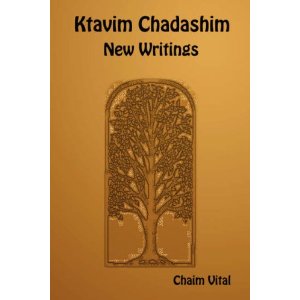 Chadashim) cautions against utilizing the 72 Names, and understanding what his teacher, the Arizal, was highlighting in examining the verse Exodus 14:14, we can see how best to utilize them: In silence.
Chadashim) cautions against utilizing the 72 Names, and understanding what his teacher, the Arizal, was highlighting in examining the verse Exodus 14:14, we can see how best to utilize them: In silence.
We do no harm in connecting to the 72 Name Matrix if we silence our mouths and minds and let G-d do the work for us. So rather than stare at the Names and tell them, or the universe, what we want to happen, or G-d forbid try to recite them, we should simply silence ourselves, let go, and let G-d to what’s best for us. Anything else, is pure ego, and nothing good can come of that.
In other words, we must make room for G-d in our lives, thoughts, and especially in our meditations. And as the Rav asked of me, and Moses asked of the Israelites at the Sea of Reeds, we must make room for Moshiach (the Messiah) in our lives as well. Moses comes to us in every generation, and as Moshiach in this one, and we have know enough to step out of the way and allow him to split the seas for us, for that is the only way to reach the Tree-of-life on the other side.
And beware of those that will try to interfere. Ask yourself this, if the plague killed all the Egyptian livestock and animals, where did Pharaoh get the 1200 horses and 600 mules for his 600 choice chariots? And the rest of the mules and horse for his other chariots?
We’ll give you the answer in out next post, but you already know it inside of you.
Shavua Tov.


